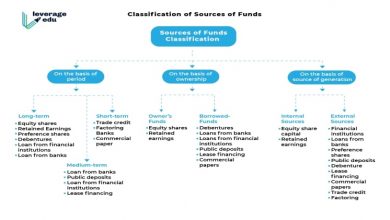From Fiancés to Green Card Holders Understanding Income Requirements for Marriage Visas

What are the income requirements for a marriage-based green card petition?
The income requirements for a marriage-based green card petition, specifically the Affidavit of Support (Form I-864), vary depending on the petitioner’s household size and the federal poverty guidelines. The petitioner (sponsor) is required to demonstrate that they have enough income to financially support the intending immigrant and prevent them from becoming a public charge. Here are some key points:
- Minimum Income Requirement: Generally, the petitioner’s income must be at least 125% of the federal poverty guidelines for their household size. If the petitioner is in active duty in the U.S. armed forces, the requirement is 100% of the poverty guidelines.
- Household Size: The household size includes the petitioner, the intending immigrant, any dependents, and any other people for whom the petitioner has already submitted an Affidavit of Support.
- Form I-864P: The USCIS releases an updated version of Form I-864P, which provides the poverty guidelines for different household sizes. This form helps determine the minimum income requirement based on the petitioner’s household size and location.
- Sponsor’s Assets: If the petitioner’s income does not meet the required threshold, they might be able to use assets to supplement their income. The assets must be easily convertible to cash and must exceed three times the difference between the sponsor’s household income and the minimum income required.
- Joint Sponsor or Household Member: In cases where the petitioner’s income is insufficient, a joint sponsor (another individual willing to take legal responsibility for supporting the immigrant) can be added. Alternatively, a household member’s income can be included if they meet certain requirements.
- Affidavit of Support Form: The petitioner must complete and submit Form I-864, Affidavit of Support, along with the necessary documentation as proof of income, such as tax returns, W-2s, pay stubs, and other financial records.
Please note that immigration laws and regulations can change over time, so it’s crucial to refer to the most up-to-date information on the official U.S. Citizenship and Immigration Services (USCIS) website or consult with an immigration attorney for the latest requirements and guidelines.
For the most accurate and current information regarding marriage-based green card income requirements, I recommend visiting the USCIS website or seeking legal advice from a qualified immigration attorney.
How to prove that the petitioner meets the income requirements for a marriage green card petition?
Proving that the petitioner meets the income requirements for a marriage-based green card petition involves providing the necessary documentation to demonstrate their financial capacity to support the intending immigrant. Here’s a step-by-step guide on how to do this:
- Complete Form I-864 – Affidavit of Support: Fill out Form I-864 accurately and completely. This form is a legal contract in which the petitioner agrees to provide financial support to the intending immigrant, ensuring they won’t become a public charge.
- Gather Supporting Documentation: Collect the required documentation that verifies the petitioner’s income and financial stability. Common documents include:
- Tax Returns: Provide copies of the most recent federal tax returns, including all schedules, W-2s, and 1099s.
- Pay Stubs: Include pay stubs for the most recent months to demonstrate consistent income.
- Employment Verification Letter: Obtain a letter from the employer stating the petitioner’s job title, start date, salary, and employment status.
- Bank Statements: If necessary, provide recent bank statements to show additional sources of income or assets.
- Other Income Documents: If the petitioner has other sources of income, such as rental income or dividends, provide documentation for these as well.
- Calculate Household Size: Determine the petitioner’s household size, which includes the petitioner, the intending immigrant, any dependents, and any other individuals for whom the petitioner has submitted an Affidavit of Support.
- Compare Income to Poverty Guidelines: Check the most recent Form I-864P on the USCIS website to find the poverty guidelines for your household size and location. Ensure that the petitioner’s income meets or exceeds the required amount (usually 125% of the poverty guidelines, but there may be variations).
- Prepare Affidavit of Support Package: Compile all the documentation into a well-organized package. Include Form I-864, the supporting financial documents, and any additional proof of assets if applicable.
- Translation and Certification: If any of the documents are not in English, provide certified translations. Ensure that all documents are legible and clear.
- Organize Copies: Keep copies of all submitted documents for your records. This is important in case there are any discrepancies or further inquiries.
- Submit the Affidavit of Support Package: Include the completed Form I-864 and all supporting documents in your green card application package. Follow the instructions provided by USCIS for submission.
- Joint Sponsor or Household Member (if applicable): If the petitioner’s income is insufficient, a joint sponsor or a household member’s income can be included. In this case, the joint sponsor or household member must also complete Form I-864 and provide their own supporting documentation.
- Wait for USCIS Response: USCIS will review your green card application, including the Affidavit of Support, and may request additional documentation if needed. It’s important to respond promptly to any USCIS requests to avoid delays in processing.
Always refer to the most up-to-date information on the official USCIS website and consider consulting with an immigration attorney to ensure you meet all requirements and submit a complete and accurate application package.
What to do if the petitioner doesn’t meet the minimum income requirements?
If the petitioner doesn’t meet the minimum income requirements for a marriage-based green card petition, there are still options available to move forward. Here are a few strategies to consider:
- Joint Sponsor: A joint sponsor is someone who meets the income requirements and is willing to take legal responsibility for financially supporting the intending immigrant. The joint sponsor must be a U.S. citizen or lawful permanent resident and meet the income requirements for their own household size in addition to the intending immigrant’s household. The joint sponsor will need to submit their own Form I-864 along with the required supporting documentation.
- Household Member’s Income: A household member who lives with the petitioner and is related by birth, marriage, or adoption can also be a co-sponsor. The household member needs to meet the income requirements for their own household size and complete Form I-864A, Contract Between Sponsor and Household Member. This form is submitted along with the primary sponsor’s Form I-864.
- Assets: If the petitioner’s income falls short but they have significant assets, they might be able to use their assets to make up the difference. The value of the assets must exceed three times the income difference between the petitioner’s income and the required minimum income. Appropriate documentation, such as property deeds, bank statements, and valuations, will need to be submitted to demonstrate the value of the assets.
- Combining Income, Assets, and Co-Sponsors: In some cases, you might be able to combine the income of the petitioner, assets, and the income/assets of a joint sponsor or household member to meet the requirements. This can be a complex process, and you should ensure that you understand the specific guidelines and documentation required.
- Consider Other Legal Avenues: If meeting the income requirements is not feasible, you might want to explore other immigration options that don’t rely on the petitioner’s income. Consulting with an immigration attorney can help you understand alternative routes and eligibility criteria.
- Explain the Circumstances: If there are extenuating circumstances that have led to the petitioner’s income being below the threshold, you can provide an explanation in a cover letter or additional documentation. However, this is not a guaranteed solution and should be used in conjunction with other options.
- Seek Legal Advice: Immigration laws can be complex, and the best course of action will depend on your specific situation. Consulting with an experienced immigration attorney is strongly recommended. They can provide personalized advice and guidance tailored to your circumstances.
Remember that immigration regulations can change, so it’s important to refer to the most up-to-date information on the official USCIS website or consult with an immigration attorney for the latest guidance.



